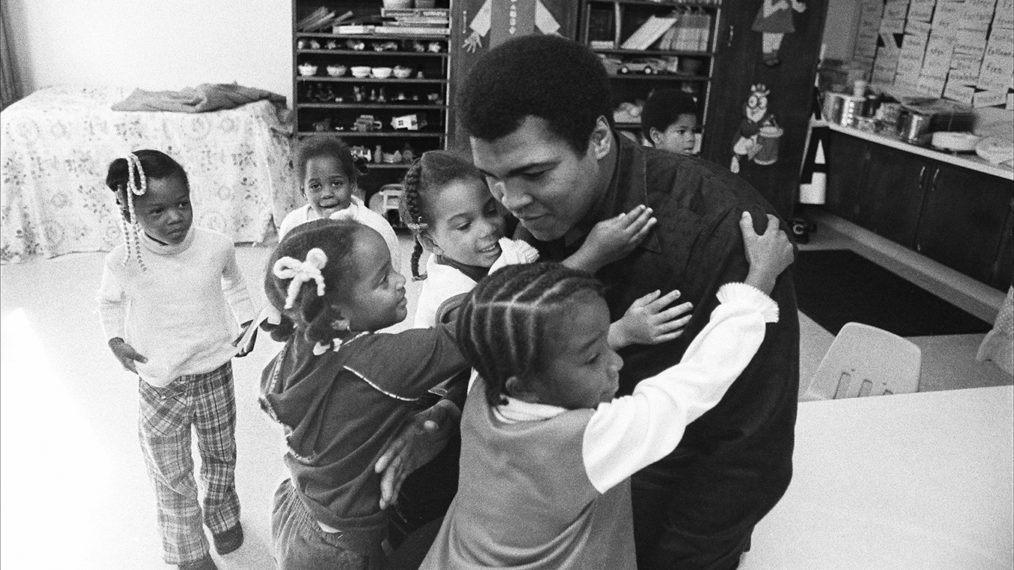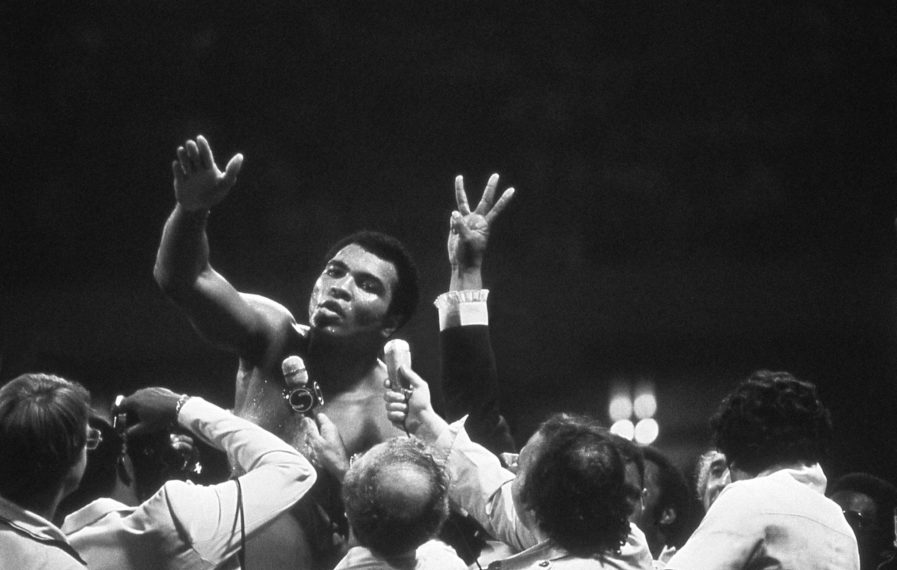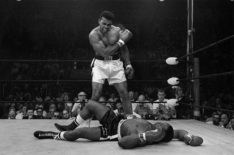Roush Review: Ken Burns’ Dynamic Portrait of Muhammad Ali Is a Knockout

Review
As punchy as its charismatic subject, so full of twists and turns that it earns a “To be continued…” teaser after each episode, Ken Burns’ majestic four-night portrait of legendary boxer Muhammad Ali — written and co-directed by his daughter Sarah Burns and her husband David McMahon — delivers a knockout of sheer narrative power.
Celebrating his crowd-pleasing bravado and achievements while never ignoring his cruel jabs and conceited taunts in and out of the ring, Muhammad Ali is a fully rounded, colorfully compelling portrait of a controversial and complex public figure described by one scholar as “a blast furnace of race pride.”

(Credit: Courtesy of PBS)
His eventful life touches on themes common to Burns’ work: race, faith, sports and what it means to be an American. Ali was a lightning rod for ire, vilified as “un-American” when he joined the Nation of Islam, changed his name from Cassius Clay and sat out the Vietnam War on moral grounds. Upon achieving his goal as Heavyweight Champion of the World, he declared to the world, “I’m free to be what I want to be and think what I want to think.”
The film traces his complicated history with Nation of Islam’s separatist leader Elijah Muhammad and his conflicted protégé Malcolm X, an association seen as “career suicide” that would result in Ali being stripped of his title. “He called up violent emotions,” observes novelist Walter Mosley.
But when his battered body and brain eventually got the best of him, silencing “the Louisville Lip” as he struggled with Parkinson’s disease, the world rallied around him, culminating in an emotional climactic coronation at the 1996 Atlanta Olympics torch lighting. Self-anointed as “The Greatest,” Muhammad Ali is a perfect fit for our greatest documentarian.
Muhammad Ali, Documentary Premiere, Sunday–Wednesday, Sept. 19–22, 8/7c, PBS (check local listings at pbs.org)
From TV Guide Magazine
Crime, Comedy & Convenience Stores: Unwrapping Hulu's 'Deli Boys' With the Cast
Cupcakes, corndogs…and cocaine?! Two brothers find themselves in a hilarious pickle when they inherit an unseemly bodega biz in Hulu’s new comedy Deli Boys. Find out how The Sopranos and Real Housewives of Orange County influenced the cast. Read the story now on TV Insider.









